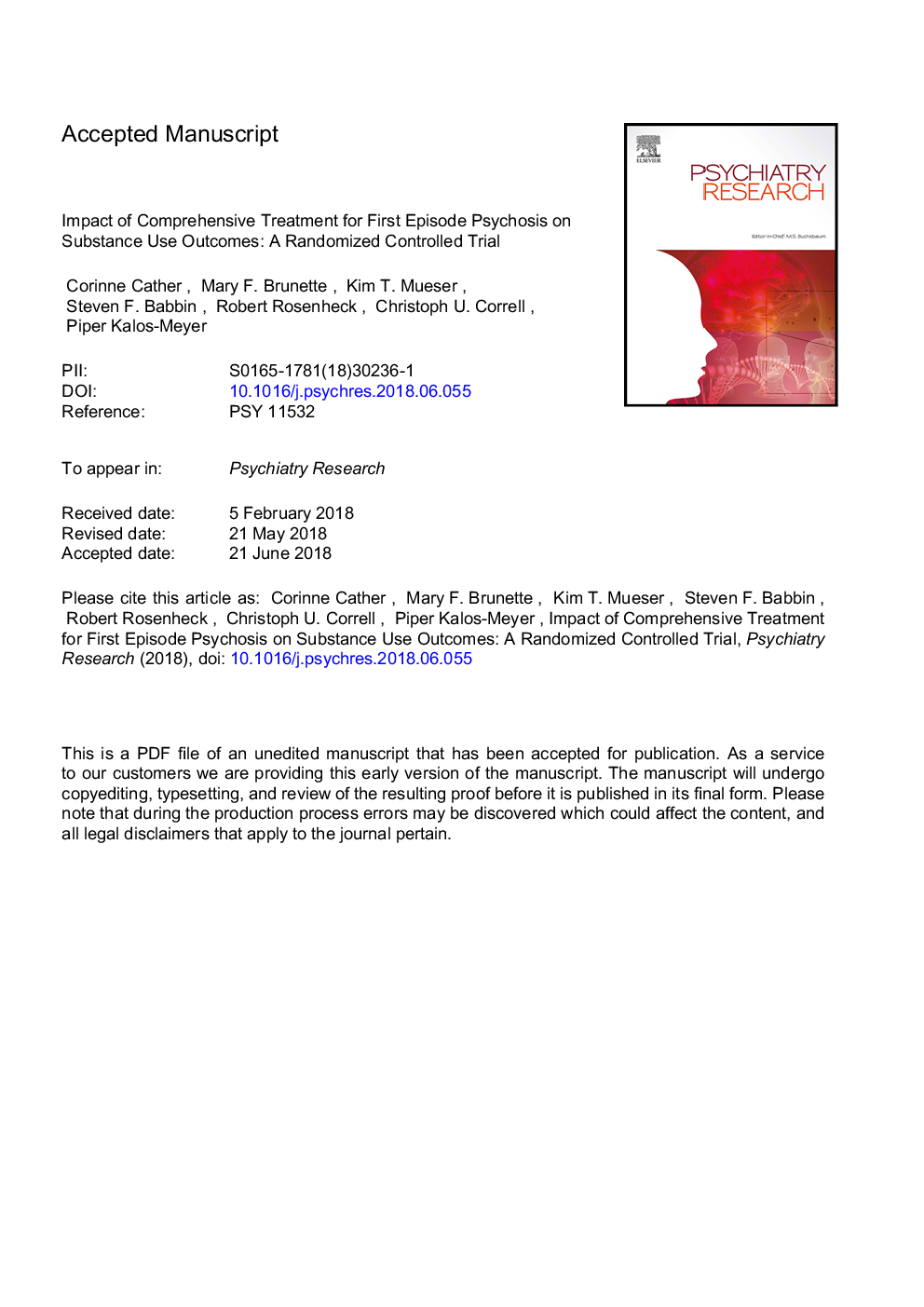| Article ID | Journal | Published Year | Pages | File Type |
|---|---|---|---|---|
| 6811213 | Psychiatry Research | 2018 | 27 Pages |
Abstract
Lifetime co-occurring substance use disorders are common at the time of presentation for treatment of a first episode of primary psychosis and persistent substance use disorder (SUD) leads to poorer outcomes. We assessed whether the NAVIGATE program, a coordinated specialty care service that includes optional substance abuse content reduced substance use compared to usual care in 404 individuals in the Recovery After Initial Schizophrenia Episode-Early Treatment Program (RAISE-ETP) study. Participants were randomized to two years of NAVIGATE (nâ¯=â¯223) or usual care (nâ¯=â¯181) and assessed monthly for substance use. At baseline, over one-half (51.7%) of the participants met criteria for a lifetime SUD, including over one-third with alcohol use disorder (36.4%) and with cannabis use disorder (34.7%). Contrary to our hypothesis, there was no treatment group by time interaction effect on days of self-reported substance use over the two-year follow-up. Participant exposure to the substance abuse component of the NAVIGATE program was low, suggesting that modifications to the program and training method for clinicians may be needed. Further research is needed to determine the most effective strategies for addressing substance use disorders in persons recovering from a first episode of psychosis.
Related Topics
Life Sciences
Neuroscience
Biological Psychiatry
Authors
Corinne Cather, Mary F. Brunette, Kim T. Mueser, Steven F. Babbin, Robert Rosenheck, Christoph U. Correll, Piper Kalos-Meyer,
